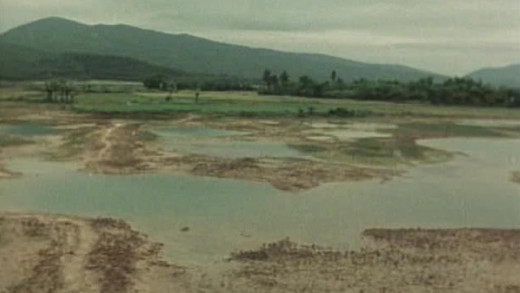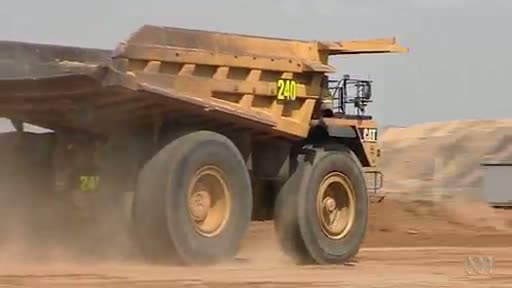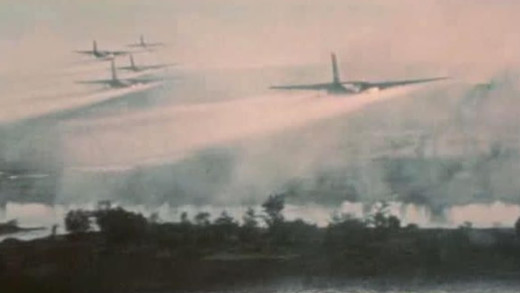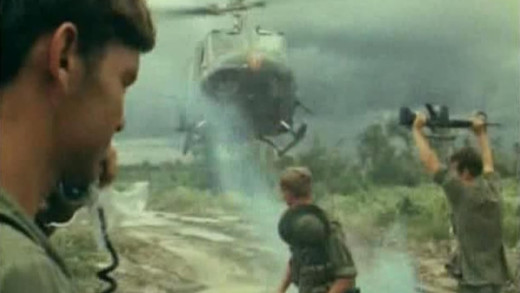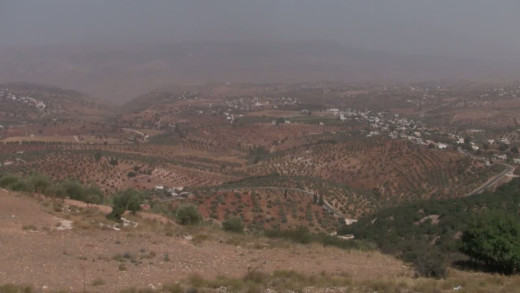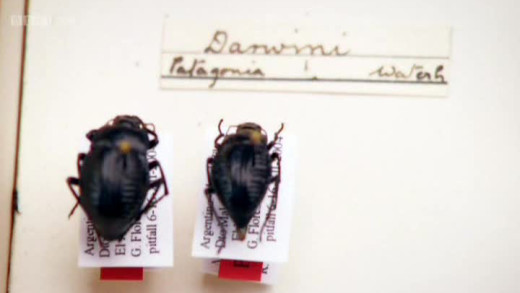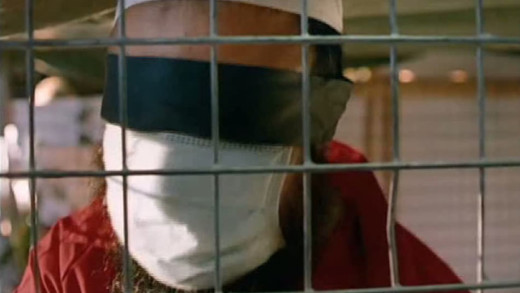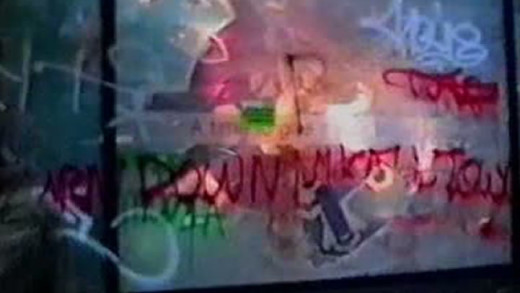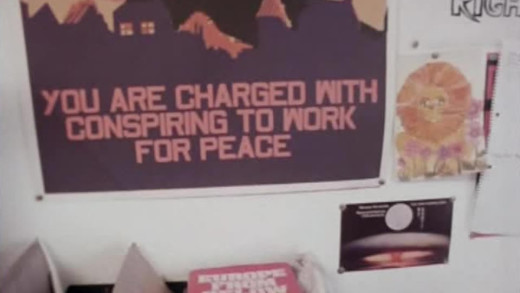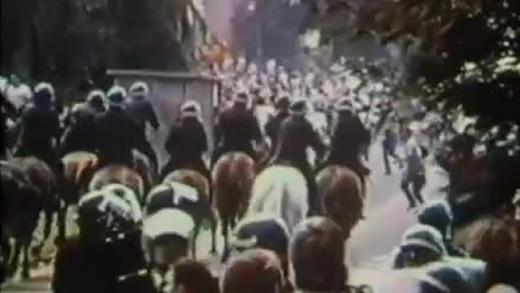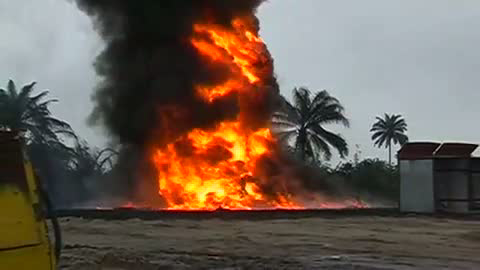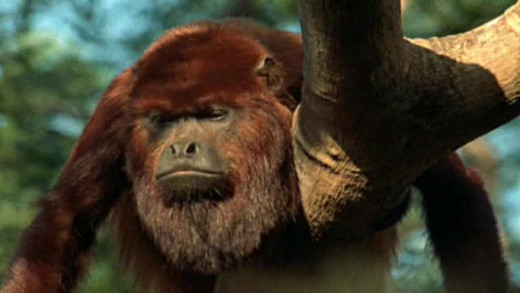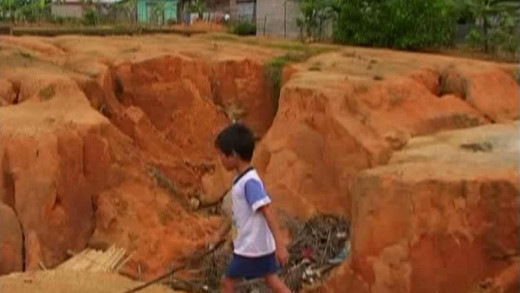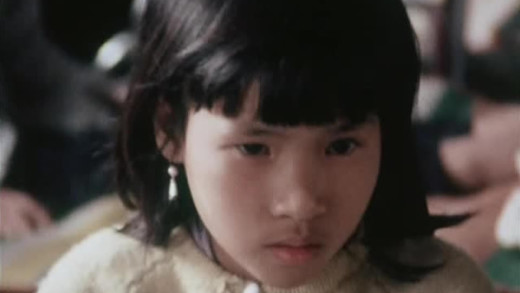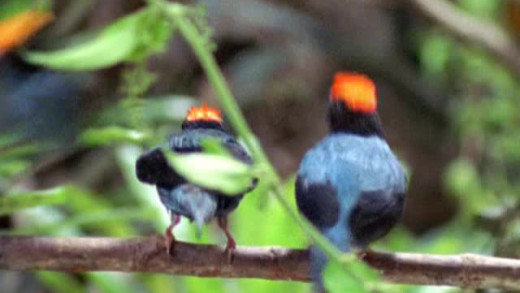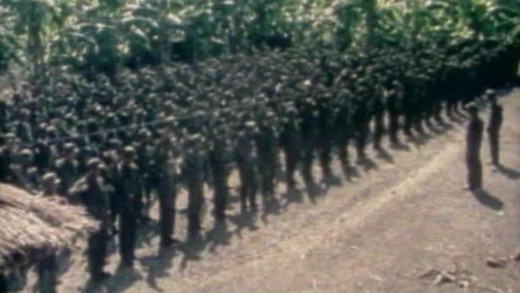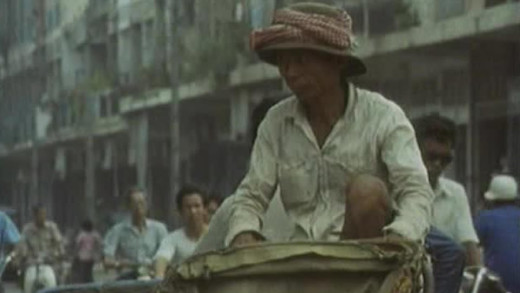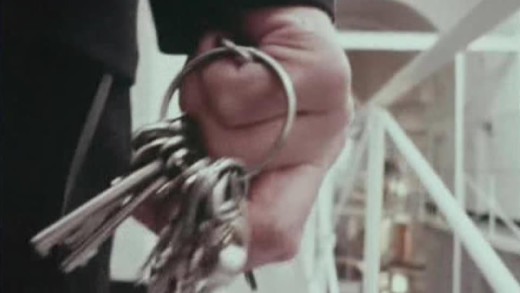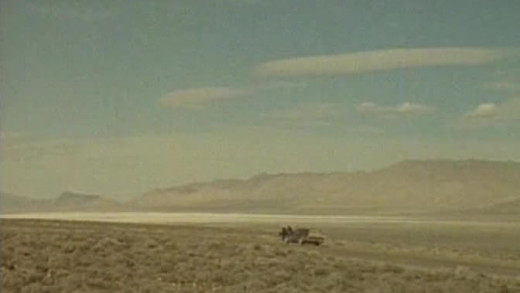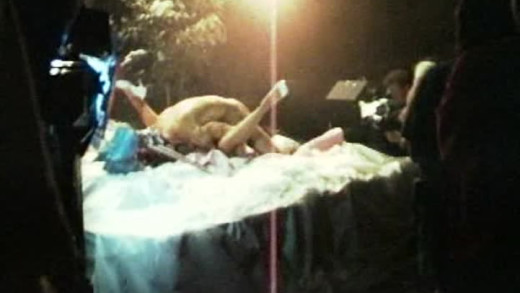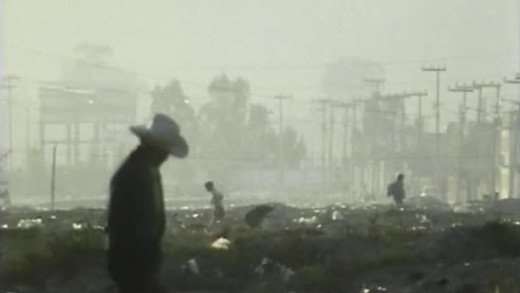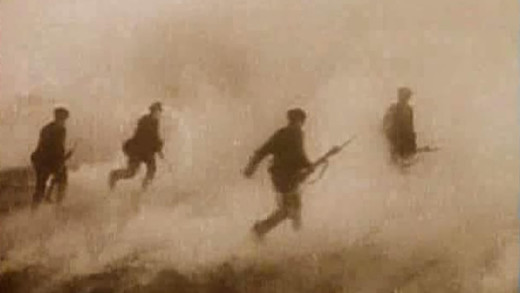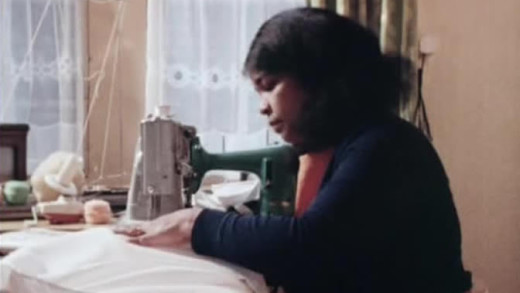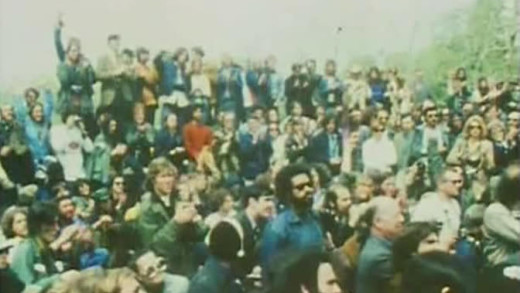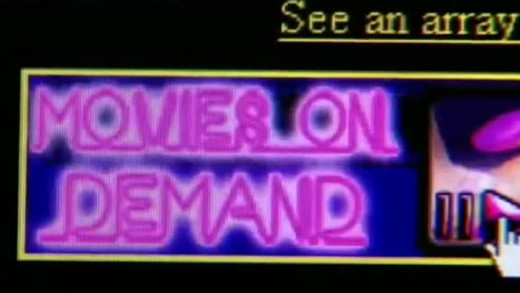In 1978, three years after the end of the Vietnam War, film-maker John Pilger travels back to Vietnam to find out what had happened under the new regime. Do You Remember Vietnam? recounts numerous personal stories: talks with a young tour guide at a war crimes museum who had been imprisoned in the infamous US tiger cages; a former North Vietnamese soldier into the underground base where he spent 20 years crawling through tunnels undetected; and views from the streets in Hanoi, where the largest single aerial bombardment in history took place.
It's been described as the boom that keeps on giving -- an export bonanza that will help Australia ride through a world-wide economic downturn. All across Australia, workers have left their jobs to make big money in the mining industry. In the rush to exploit vast natural resources, employers have all but set aside the idea of building and supporting communities, instead they pay big wages to fly-in, fly-out; drive-in, drive-out workers, encouraging them to work long shifts, leaving them with little reason to become part of a local community...
From 1974, Hearts and Minds documents the events of the Vietnam War using news clips as well as directly captured footage showing actions and other happenings on the ground by the United States military during the war. The film also follows Vietnamese people themselves as to how the war affects them and why they fight back. Hearts And Minds reveals a racist and self-righteous militarism of the west, ironically in stark similarity to recent happenings in Iraq and elsewhere.
"Supermarkets have bulked up. These days they’re retail superpowers who make money not just when we eat or drink but increasingly when we fill the petrol tank, play pokies or buy a hammer from the local hardware – and they’re quietly stalking pharmacies, newsagents and florists. Coles and Woolworth’s sell 70 percent of the dry groceries and half the fresh food that Australians consume – among the highest concentrations of market power in the developed world"...
Using interviews and frontline footage, Vietnam -- The Quiet Mutiny reveals the internal sense of disillusionment and frustration born from the rift between bureaucracy and soldiers, that triggers the withdrawal of the United States military from Vietnam. As the US employs psychological warfare against the Vietnamese, reporter John Pilger finds himself unable to obtain meaningful information from the military—a press conference he attends is nicknamed "the 5 o'clock follies" for the evasive nature of the proceedings. And so it is with the grunts, the "wheels of the green machine," that Pilger finds a very human side to the US presence in Vietnam: soldiers who were once ready to serve their country, now doubtful of their purpose there. Plied with visits from Miss America and ignored by Vice President Spiro Agnew, they experience the war in a way many of their superiors do not.
Greening The Desert follows permaculturalist Geoff Lawton and his team to the Jordan desert where they transform 10 acres of the arid desert into a lush, thriving, food producing garden. In a massive transformation, the team develops a system to harvest rainwater, creates swells with over a foot of mulch and designs the system to reduce salt levels in the soil dramatically—only a few miles from the Dead Sea.
David Attenborough asks three key questions: How and why did Darwin come up with his theory of evolution? Why do we think he was right? And why is it more important now than ever before?
In the wake of the attacks of September 11th 2001, the United States opened a prison camp in Guantánamo Bay, Cuba. The hundreds of prisoners detained there are not afforded prisoners of war status according to the Geneva Convention, they are labelled "unlawful combatants" and are held indefinitely and tortured with no right to a lawyer or a trial. Gitmo -- The New Rules Of War cuts through the official political rhetoric surrounding Guantánamo to expose what really goes on at the United States central gulag in the 'war on terror'.
Interspersed with shots of direct-action and interviews with participants, Big Rattle In Seattle documents the protests in Seattle against the World Trade Organisation conference in September 1999.
A Nod And A Wink reviews the use of vague Conspiracy laws in Britain from 1975, laws which are much in the same as those used in police states such as Brazil and the Soviet Union to suppress political and moral dissent. This film raises and addresses the serious questions about the way the legal system works in Britain--and indeed elsewhere...
Orgreave in the North of England was the focal point for a mass protest by miners in June 1984. At this time, miners were angry over proposed pit closures and reacted by striking and pressuring other pits to close. The culmination of these protests was a mass gathering of miners from all over the country at Orgreave. On the morning of 18th June miners were escorted into Orgreave. At this point, police tactics already resembled a military campaign. After a push by the miners, the police acted with force, charging the pickets on horses. The protest soon turned violent with the police deploying dogs, batons and guns in an attempt to suppress the protest. The Battle for Orgreave interviews defendants directly about their experiences of Orgreave, and how those experiences changed their life...
The Niger Delta is still an environmental disaster after more than fifty years of oil exploitation. One and a half million tons of crude oil has been spilled into the creeks, farms and forests so far. Natural gas contained in the crude oil is burnt off in gas flares which spread toxins, acid rain and destroy crops. Poison Fire documents the life of the locals in impoverished communities, creeks full of crude oil, devastated mangrove forests, wellheads leaking gas, all working to fight against oil giant Shell to at least stop the toxic gas flares...
The Life of Mammals is a ten part series that follows the evolution and habits of various mammal species around the world. Each episode looks at one or several closely related mammal groups and discusses the different facets of their day-to-day existence and evolutionary origins.
For the people of Vietnam, war is not over. Three generations on from 1975, babies are still being born with serious birth defects and genetic abnormalities -- the legacy of the United States intensive use of chemical weapons. To this day, it is still unknown just how many have been affected. In 2005, on the eve of a historic lawsuit to determine the culpability of the United States, this film directly portrays the powerful effects of Agent Orange.
After the 1973 Paris Agreement and military ceasefire, more than 70,000 soldiers and civilians had been killed in Vietnam. Vietnam -- Still America's War investigates how the Vietnamese populace still have to contend with mines and other legacies of the war, even after the ceasefire, and after the war...
The Life of Birds follows the evolution and habits of bird species all across the globe, showing how a huge variety of birds each deal with a different aspect of life.
John Pilger once again travels to Cambodia to report on the brutality and murderous political ambitions of the Pol Pot and Khmer Rouge totalitarian regime which brought genocide and despair to the people of Cambodia; while neighbouring countries, including Australia and the United Nations shamefully ignored the immense human suffering and unspeakable crimes that bloodied the country...
Cambodia -- The Betrayal is the fourth follow-up to John Pilger and David Munro's series on Cambodia, the film Year Ten from 1989, which examined the hypocrisy of western geopolitics by looking at the way in which the United Nations pressured Cambodia to accept the Khmer Rouge regime as part of the United Nations peace plan.
Guilty Until Proven Innocent reports on the issue of innocent people confined to prisons on remand in the UK, circa 1974. People are imprisoned without trial and are later released with either a small fine, a set of mandatory conditions, or leave completely innocent. It's a strange set of circumstances in a country with such pretensions of a bill of rights and espoused 'legal protections.' Is bail a right or a privilege?
John Pilger travels to Reno, Navada in the United States, to investigate the threats facing Pyramid Lake--a reservation of the Paiute people. With water diversion beginning in 1905 by Derby Dam and the lake's very existence threatened, the Paiute sue the conservation department of government--the DOI--to curtail further damage. By the mid 1970s, the lake had lost 80 feet of depth, with extensive impacts to fish and other life of the lake. Further water diversion in the 1970s was driven by a racially-exclusive sportsman's and leisure reserve used for white hunting and recreation near the town of Fallon...
To Know Us Is To Love Us covers the public reaction to a Vietnamese refugee camp constructed outside Fort Smith in Arkansas, 1975—not long after the end of the Vietnam war. The film documents the stories of the refugees coming to the United States, along with the reactions of American troops, the public and citizens who take in Vietnamese refugees to assimilate them into American life.
Director Dag Yngvesson begins making a documentary about the porn industry, until he is asked by a desperate director to shoot film for him and his next porn movie. After Yngvesson agrees, he is led deeper and deeper into the world of porn, speaking frankly with many of the industries most famous icons, such as Jeanna Fine, Bill Margold and a 19-year-old newcomer named Selena who discusses her career choice on film with her mother. Viewers are invited into many areas of the industry previously unseen, let alone discussed, including the real lives of the performers and the inner workings of the industry...
The Mexicans
The Mexicans reports on the history of political repression and corruption in Mexico, a country dominated to this day by its close neighbour—the United States.
The Search For Truth In Wartime investigates the changing face of war reporting and the role of the media during wartime, in context with the Crimea through the two World Wars, to Vietnam and the Falklands. "What is the role of the media in wartime? Is it simply to record, or is it to explain? And from whose point of view--the military, the politicians or the victims?"
One British Family portrays the racial minefield of British society through the eyes of a black family. The film is set in Newcastle during 1974, revealing the multifaceted aspects of internalised racism that still exists today...
Heroes
Heroes reports on the treatment of returning combat soldiers from Vietnam in the early 1980s. The film investigates the strange cultural absence of reverence or memory to soldiers returning home, and shows with first-hand accounts and interviews with returning soldiers, opines from the front line about America's unpopular war.
Life In Cold Blood is a five part series studying the evolution and habits of amphibians and reptiles, presented by David Attenborough.
Pornography is now more easily accessible than ever before--it's a click away on the internet. And many men are finding their everyday relationships in impacted because of their porn addiction. This documentary examines the problem and explores growing evidence that there is a chemical basis in the brain for the condition, related to dopamine, uncovering the human costs of porn addiction along the way. The film follows some real life examples of people battling their addiction, as well as reviewing some cases where addiction has unravelled with tragic results. But as with any addiction, the good news is that it can be turned around...
